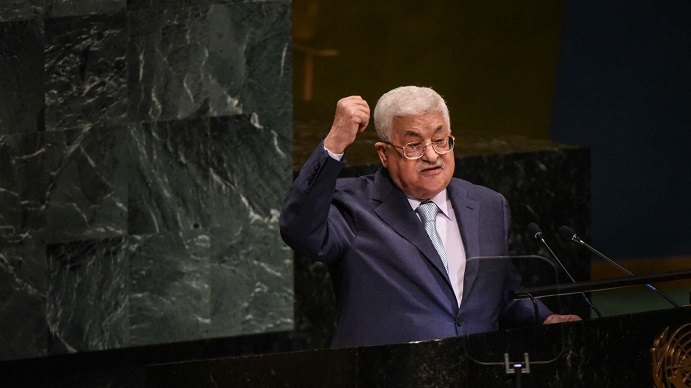The National / June 12, 2019
The economic workshop has divided the region and sparked a lobbying campaign by the Palestinians to prevent Arab attendance.
The American-sponsored economic workshop on the Israeli-Palestinian conflict, to be held in Bahrain on June 25-26, looked dead in the water until Tuesday.
With just two weeks until the event, on which little details have been released, uncertainty surrounded the attendees, particularly Arab states.
But the White House has announced a new slate of participants, a move that has injected some life into the launch of the economic component of US President Donald Trump’s “Deal of the Century”.
US officials have said they are inviting economic and finance ministers, as well as business leaders from the region and around the world to Bahrain to discuss investment in the Palestinian territories. It is an event that promises tens of billions of dollars for the Palestinian economy for major concessions likely to be widely unpopular with the Palestinian population.
The Palestinian leadership is boycotting the conference, but a host of other states will be attending the summit.
The new attendees are Jordan, Egypt and Morocco [officially denied by its Prime Minister Saadeddine Othmani; ed.], who all informed the White House of their plans to participate on Tuesday. Their inclusion is significant for Israel’s hard-right government and for the Trump administration. Jordan and Egypt are the only Arab states to have formally signed peace treaties with Israel.
The UAE, Saudi Arabia and Qatar had already confirmed that they will be in attendance, noting that participation does not equal acceptance of Washington’s plans.
The host of the conference, Bahrain, has called on the Palestinians to attend, saying that it “serves no other purpose” than to help the Palestinian people. But it remains unclear if Kuwait and Oman will be in attendance. Oman hosted Israeli Prime Minister Benjamin Netanyahu for a state visit in October so Muscat is expected to confirm its participation in Manama.
The world’s top financial bodies will also be in attendance, with the World Bank and the International Monetary Fund all sending representatives.
But the main stumbling block to the summit’s success is the lack of participation by the Palestinians, who have refused to attend, calling it another move to jettison their hopes of statehood. They view the deal as one that will be heavy one-sided in favour of Israel, and their boycott has dimmed any hope of progress for the plan that has been two years in the making.
Lebanon and Iraq, both close allies of Iran, have joined them. Lebanese Foreign Minister Gebran Bassil said Beirut was not consulted about the workshop, and that the government would not approve of any peace plan not accepted by the Palestinians. The Iraqi Foreign Ministry’s spokesman, Ahmad Al Sahaf, said “this conference does not concern us and we will not take part” in a statement. “Iraq reiterates its solid stance towards Palestine and the rights of the Palestinian people.”
It is unclear if the two countries received invites from the US.
Mr Trump’s Middle East advisers, son-in-law Jared Kushner and Middle East envoy Jason Greenblatt, have continued to push ahead with the conference, saying that it will bring prosperity to the Palestinians. Israel itself has yet to formally accept an invite to the summit as American and Israeli officials work out the exact details of what the Israeli delegation should consist of.
The Palestinians have called on the Arab states that have confirmed their attendance to U-turn and send a message to the White House by rejecting the invitation to Manama, a move that Mr Trump’s far-right ambassador David Friedman has called a bid to sabotage the lynchpin event of the peace plan’s rollout.
“The Palestinian Authority urges Egypt and Jordan not to attend the Bahrain conference,” Ibrahim Melhem, a spokesman for the Palestinian government said on Facebook after US officials announced the two nations, along with Morocco, would attend.
Mr Melhem urged “all brotherly and friendly countries to withdraw”, adding that participation “would carry wrong messages about the unity of the Arab position” on rejecting Mr Trump’s plan.
It seems that call will not be answered in favour of officials in Ramallah.













